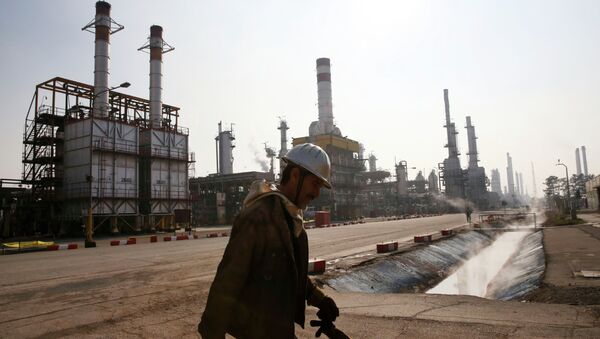"During October, shipments of Iranian oil fell 90 kb/d to 1.8 mb/d with waiver countries – China, India, Korea, Turkey, Japan, Italy, Greece and Taiwan – loading more than 70% of the volume, according to Kpler data. South Korea, France and Japan’s shipments were down to zero… India, Iran’s second-biggest lifter, cut back to about 310 kb/d. Exports to top buyer China, however, rose to 820 kb/d," the report read.
READ MORE: IEA Improves Forecast of Oil Price to $88 Per Barrel in 2025, to $112 in 2040
The United States hit the country's oil exports on November 5, introducing the second package of sanctions. However, Washington granted temporary exemptions to eight importers of Iranian oil.
OPEC Countries 105% Compliant With Deal on Oil Production Cuts
The report by the International Energy Agency also showed that the countries of the Organization of the Petroleum Exporting Countries (OPEC) were 105-per cent compliant with the deal on oil output freeze in October.
"Increased supply from OPEC members of the Vienna Agreement saw compliance in October ease to 105%, the lowest since September 2017," the report read.
The non-OPEC members of the production freeze deal reached a 42-per cent compliance with the pact. The IEA revised the assessment of September compliance down to 32 percent.
IEA Expects Crude, Condensate Production in Russia to Grow to 11.5 mb/d in 2019
The International Energy Agency expects crude and condensate output in Russia to stand at 11.2 million barrels per day this year and to increase up to 11.5 million barrels per day in 2019, according to its Oil Market Report.
READ MORE: IEA Urges Int'l Community to Follow US in Switching From Coal to Gas
"While renewed speculation about output curbs and increased financial sanctions on Russia pose risks to the outlook, we expect crude and condensate production to average 11.2 mb/d this year, rising to 11.5 mb/d next year," the report read.
Russian crude and condensate production set another record high in October, rising to 11.4 mb/d, the IEA stressed, adding that month on month increases came from Rosneft, Gazprom Neft as well as Production Sharing Agreements.
The Kremlin is closely monitoring the situation on the oil market, Russian presidential spokesman Dmitry Peskov told reporters Wednesday.
“We are closely following the development of the situation on the energy markets. There is a certain volatility, but the market is the market,” Peskov said when asked about the Kremlin’s opinion on the oil market situation.



